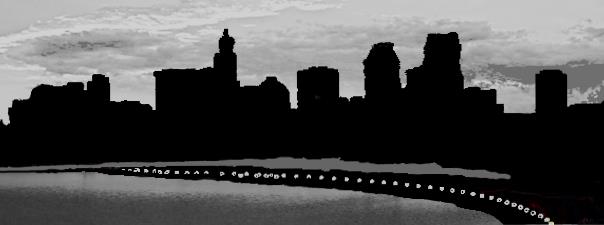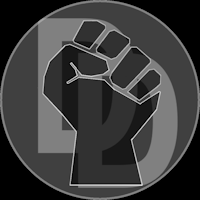St Paul Principles

One of the most effective ways that authorities destroy activist movements is by sowing mistrust and conflict. This is done through rumors, agitation, bad-jacketing, discrediting, and infiltration.
Drama and public disputes lose credibility with the public, push good people out of activism, waste time and energy, and limit groups’ abilities to work together for common goals.
The St Paul Principles are guidelines that were developed to minimize such damages and allow groups with different politics and tactics to work together without undermining each other.
Here is an excellent overview. A short summary:
- The principles were developed by groups with diverse ideology and tactics to organize more effectively for the protests of the 2008 RNC in St Paul.
- I summarize the first two principles as “we respect a diversity of tactics separated by time and space”, meaning that you might want to break windows and spray paint; and we might want a “family-friendly” march. We should not disparage each other’s tactics, and we should not interfere with each other. If our tactics are not compatible, we separate them respectfully.
- The third principle says “solve things behind the scenes and don’t make public drama”.
- The fourth says “don’t help authorities oppress the movement, and don’t be a snitch”.
The goal of all of this is to prevent harm to the movement. Another goal is to save you from burning bridges, because radical change will not come from splintered groups that prefer to fight each other rather than to fight systems of oppression.
The value of the principles seems obvious, but people are making a lot of excuses. Let’s address some myths, lies, and confusions.
“The St Paul Principles don’t apply here.”
There will be situations where the principles do not all apply completely. Occupations are more complicated, because different groups are stuffed together without separation of time and space. They may not agree on tactics. They may not agree on who decides. But for fuck’s sakes, you can try to honor the intent of the principles by communicating, limiting drama, and compromising to work together.
“The St Paul Principles don’t apply to this group because they broke the principles”
The St Paul Principles don’t apply [because you think your anger at the group justifies it]”
The principles aren’t there to protect the group from you. The principles are there to protect the movement from you. The more you dislike a group, the more important the principles are, because anger makes people sloppy, and being sloppy undermines the work against oppression.
If a group is breaking the principles, perhaps by criticizing other groups, maybe start by privately informing them why that’s a bad idea. Explain to them why they should follow the principles, rather than just telling them off. If they don’t listen, consider whether amplifying the damage they have done by adding yourself to the argument is necessary or useful.
Sometimes something does require a public response. Make your response limited and as cautious as possible. Remember that you aren’t doing this to be nice to an adversary, you are doing it to avoid undermining the broader movement.
“This person got into shit with one of us”
If that is simply true, as stated above, try to work it out behind the scenes or publicly with minimal drama.
But is that simply true?
- Were you at someone else’s action disrespecting their plans or community?
- Did you go to a movement event where you vehemently disagree with the politics of the event, and the situation blew up? What did you think would happen? You could have had your own event to oppose their view point. You could have ignored it. Don’t instigate or counterprotest comrades. How do you think that doesn’t violate three of the four principles?
- Did you choose to make an issue when a group was already trying to run an action? Did you disrespect how stressful and dangerous running a protest can be and demand personal attention then and there? Could the issue have been addressed at a lower-stress time when your distraction wasn’t putting other people potentially at risk?
These are all examples of people disrespecting unity and solidarity. If you are doing this kind of stuff, you’re the one starting shit. Maybe stop it. And quit playing victim.
“The St Paul Principles are Used to Control the Movement”
“[This group] uses the St Paul Principles to silence opposition”
“The St Paul Principles were made by socialists and I am not a socialist”.
The St Paul Principles were created specifically by a broad range of groups so that they could protest without undermining each other. Anarchists, socialists, progressives, and liberals all created and endorsed the principles. Since then, the principles have been used locally and nationally, because they reduce the harm that can be done to movements from without and within.
No one is trying to silence anything except drama that interferes with the work. Go work out your shit behind the scenes. If not, just stay out of each other’s shit. And just do your own damned work.
Solidarity
Solidarity speaks for itself. We don't all need to work together, agree, or like each other. But we can avoid helping reactionaries and systems of oppression by weakening each other. A lot of people are doing the work of an op for free.
You might think you don’t need to work with someone right now, and you’re probably right. But there will be other large events that require solidarity, and none of us are going to achieve our goals unless we relearn to at least stay out of each other's' way, if not not work together.
Reasons for Opposition
There are common reasons people are violating the St Paul Principles or arguing against them.
Some folks just don't know the history of state repression of activism, why the principles were developed, or why they are still important.
Some people just want drama and conflict, for all kinds of reasons: ego, resentment, or insecurity.
A lot of folks dislike the principles because they want to take over other people's stuff. I've told people hundreds of times, “If you don't like how that org does things, go organize your own thing”. But they never do. They don't try to organize and fail. They don't even try. They know they need other groups to bring people together, and they think they deserve to use other people’s work and reputation for their own goals without consent or consideration for how their actions may blow back on the organizers. It’s just shitty and inexcusable.
What is particularly frustrating about the “take over” crowd is this: the reason some groups can put thousands of people in the street on short notice is because: 1) people trust them with their safety, and 2) they work with and respect the impacted community. Letting someone else come in and put people at risk or disrespect the affected community undermines the trust that lets them organize. You aren’t asking to hitchhike, you are asking to hijack.
And then there are the legitimate bad actors: cops, ops, right-wing and centrist infiltrators, and folks that get money and followers by selling outrage.
Questions to Ask Yourself
Before deciding to discard the St Paul Principles, ask yourself if it is worth:
- Creating drama that costs activists credibility
- Creating conflicts and weakening solidarity, which reduces our ability to make change
- Distracting attention from the actual issues of oppression and injustice
- Helping authorities undermine, divide, and even destroy activist moments
- Looking like a fucking snitch that is causing conflicts because they work for the cops
If the issue is so severe it is worth the potential harm, then by all means, that outweighs the St Paul principles. But is it? Otherwise, you could:
- Work it out respectfully behind the scenes, which involves listening and compromise, not just making demands.
- Just drop it and do your own thing. If you don’t like how someone works, don’t work with them.
- Focus on the opposing actual sources of state violence and oppression rather rather than attacking other activists.
